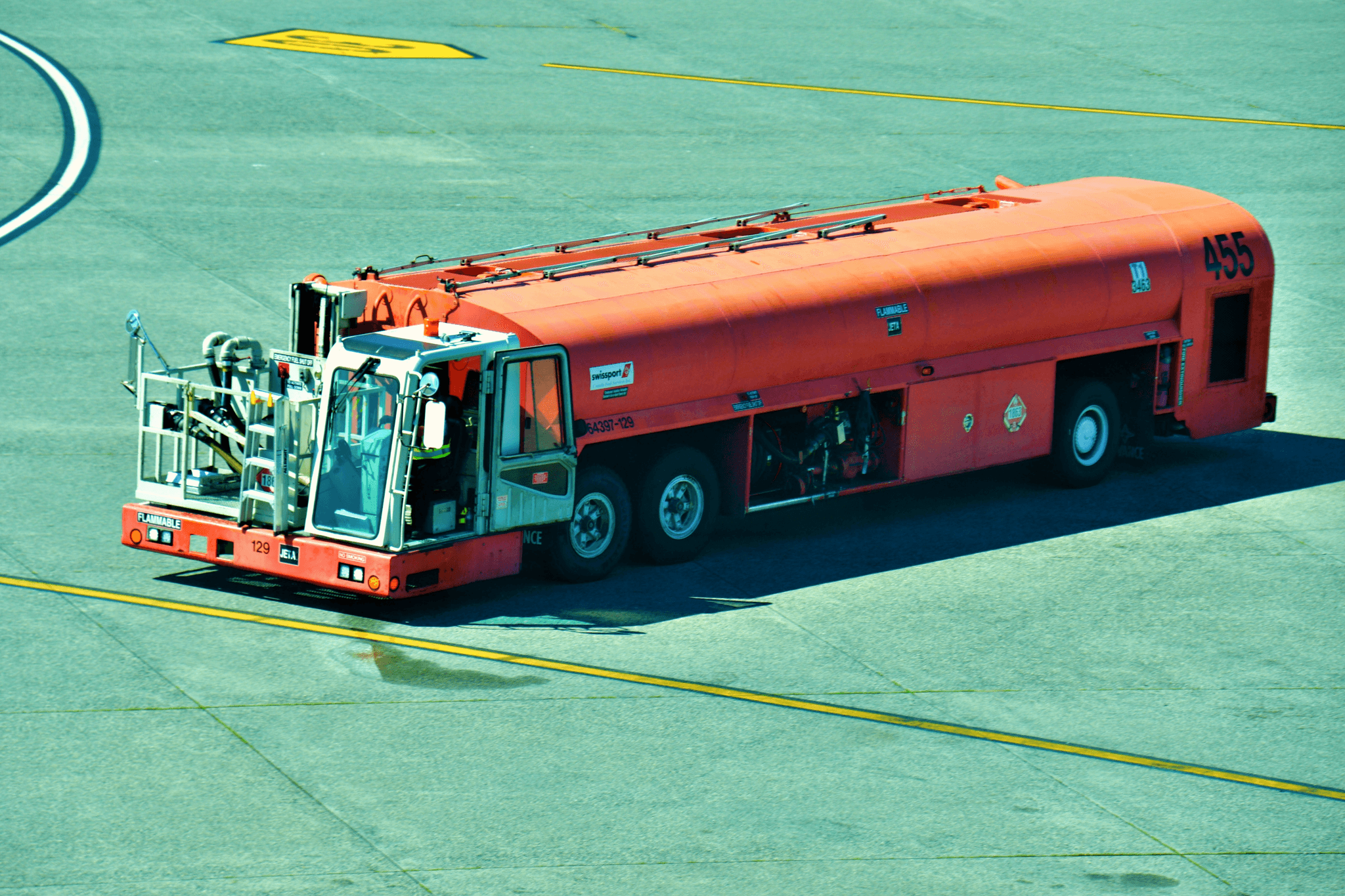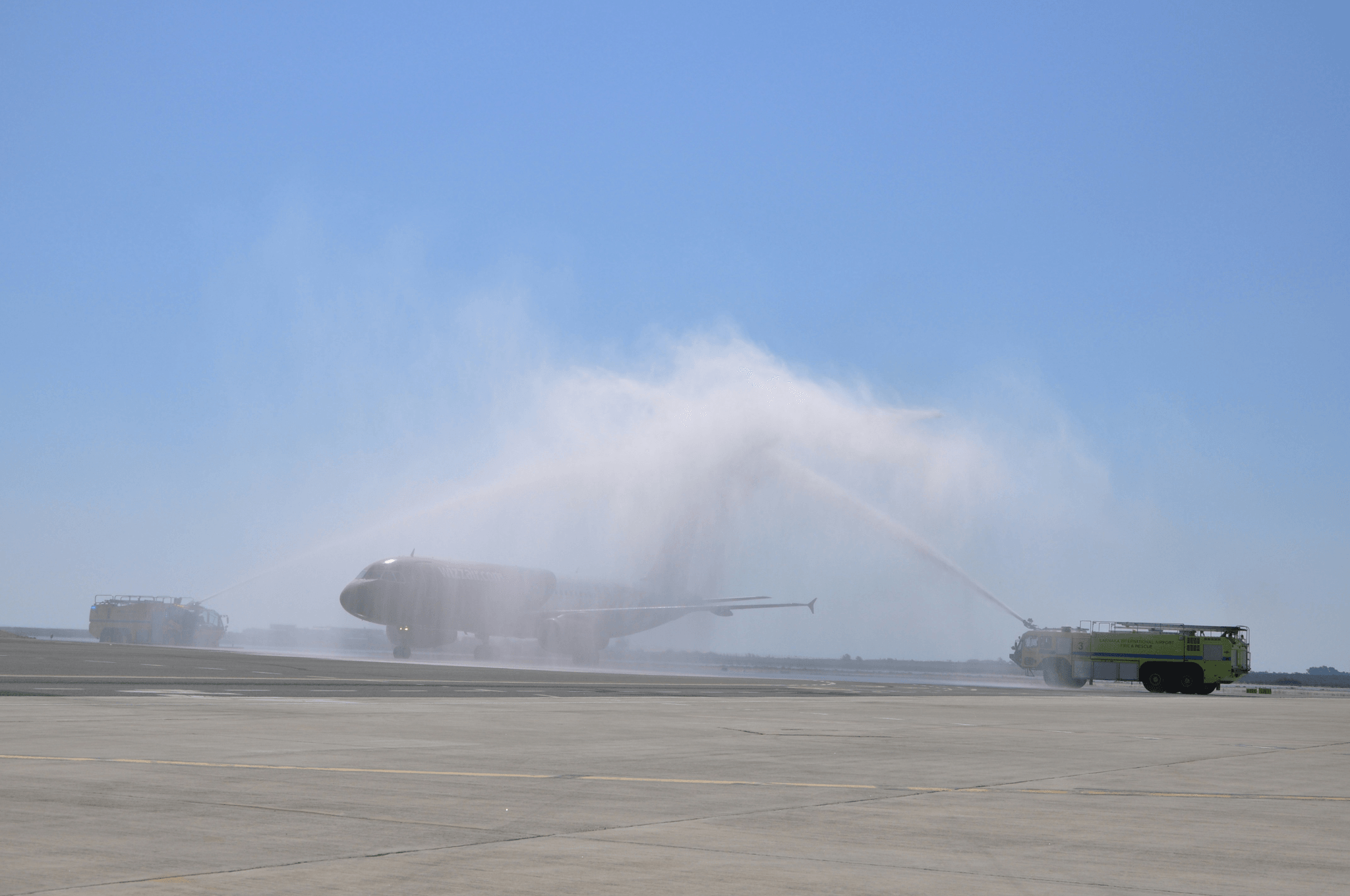Introduction

In the bustling world of aviation, aircraft fuel trucks play a crucial role in ensuring that planes are ready for takeoff. These specialized vehicles are designed to efficiently deliver fuel to various types of aircraft, from commercial jets to military planes. Understanding the significance of these trucks and their specifications can greatly enhance airport operations and refueling efficiency.
The Role of Aircraft Fuel Trucks
Aircraft fuel trucks serve as the lifeblood of airport operations, providing essential fuel services that keep planes airborne. Their primary function is to transport and dispense Jet and Avgas fuel directly into aircraft tanks, ensuring that every flight has the necessary amount of fuel for its journey. With diverse models available, including military aircraft refueling trucks, the versatility and reliability of these vehicles are paramount in maintaining smooth airport logistics.
Understanding Different Types of Refueling Trucks
Refueling trucks come in various shapes and sizes, each tailored for specific fueling needs. From standard airport fuel trucks designed for commercial airlines to military aircraft refueling trucks built for rugged conditions, understanding these differences is key when considering an aircraft fuel truck for sale. Additionally, knowing how much fuel an airport fuel truck holds can impact operational efficiency; larger capacities mean fewer trips to refill at the terminal.
An Overview of the Refueling Process
The refueling process itself is a well-orchestrated ballet involving multiple steps aimed at safety and efficiency. It begins with positioning the aircraft fuel truck alongside the plane before connecting it securely to ensure no spills occur during transfer. Questions like How much fuel does a jet truck use? often arise; however, this varies based on several factors including truck specifications and flow rates during operation—details critical for any airport's planning team.
Aircraft Fuel Truck Basics

What Is an Aircraft Fuel Truck?
An aircraft fuel truck is a specialized vehicle used to transport aviation fuel directly to airplanes on the tarmac. These trucks are equipped with pumps, hoses, and filtration systems to ensure that the fuel dispensed meets stringent quality standards. Whether dealing with Jet and Avgas refueling trucks or military aircraft refueling trucks, these vehicles are vital for maintaining flight schedules and safety protocols.
Key Features and Specifications
Aircraft fuel trucks come with a variety of key features that enhance their efficiency and safety during operations. Most models include advanced filtration systems to remove impurities from the fuel before it reaches the aircraft, ensuring optimal performance. Additionally, understanding aircraft fuel truck specifications—such as pump capacity, hose length, and tank size—can help operators choose the right equipment for their specific needs.
Importance of Airport Fuel Truck Capacity
Airport fuel truck capacity is a critical factor in determining how much operational downtime can be minimized during refueling processes. Knowing how much fuel does an airport fuel truck hold helps ground crews plan effectively for peak travel times or emergency situations when quick turnaround is essential. A well-sized fleet of aircraft fuel trucks ensures that there’s always enough supply on hand without causing delays in service.
Types of Refueling Trucks

When it comes to refueling aircraft, the type of fuel truck used can significantly impact efficiency and safety. The two primary categories are Jet and Avgas Refueling Trucks, designed for commercial aviation, and Military Aircraft Refueling Trucks, tailored for defense needs. Understanding the distinctions between these types will help operators choose the right aircraft fuel truck for their specific requirements.
Jet and Avgas Refueling Trucks
Jet and Avgas Refueling Trucks are essential for fueling commercial jets and smaller general aviation aircraft respectively. These trucks are equipped with specialized pumps capable of delivering the necessary flow rates to fill an aircraft quickly while maintaining safety standards during the process. When considering how much fuel does a jet truck use, it's important to note that these trucks can hold significant volumes—often ranging from 1,500 to 5,000 gallons—ensuring they can manage multiple refuels before needing a refill themselves.
The design of Jet and Avgas Refueling Trucks includes features like filtration systems that remove contaminants from the fuel before it reaches the aircraft's tank. This is crucial because impurities can lead to engine malfunctions or decreased performance in flight. Additionally, airport fuel truck capacity is optimized for efficiency; having appropriate-sized tanks allows for quicker turnaround times at busy airports.
Military Aircraft Refueling Trucks
Military Aircraft Refueling Trucks serve a unique purpose compared to their civilian counterparts. These trucks are engineered to meet stringent military specifications, often featuring additional armor or reinforced structures suitable for deployment in various environments—from airbases in remote locations to active combat zones. The adaptability of military aircraft refueling trucks ensures they can handle diverse fuels beyond just jet fuel—such as diesel or other specialized liquids required by military operations.
One key aspect of military refuelers is their ability to operate under pressure during critical missions where time is of the essence. They often come equipped with high-capacity tanks that allow them to carry more fuel than standard airport models; this means fewer trips back to refill during operations where every second counts. Furthermore, understanding aircraft fuel truck specifications becomes crucial when selecting a truck that meets operational needs while ensuring reliability under demanding conditions.
Advantages of Using Specialized Trucks
Using specialized trucks like Jet and Avgas Refueling Trucks or Military Aircraft Refueling Trucks offers several advantages over standard vehicles not designed specifically for aviation fueling tasks. One major benefit is enhanced safety features tailored specifically for handling aviation fuels; these include advanced monitoring systems that track pressure levels and detect leaks instantly—vital components when dealing with flammable materials like jet fuel.
Moreover, specialized trucks provide better efficiency due to their higher flow rates and larger capacities compared to generic vehicles; this translates into faster turnaround times at airports—a key factor in maintaining flight schedules without delays caused by lengthy refuel processes. Additionally, if you're looking at an aircraft fuel truck for sale, opting for one that's purpose-built will likely yield better long-term returns on investment through reduced maintenance costs and improved reliability over time.
The Refueling Process Explained

Refueling an aircraft is a critical operation that requires precision and adherence to safety protocols. It involves several key steps, ensuring that the aircraft is serviced efficiently and effectively. Understanding the refueling process can help streamline operations and enhance overall airport fuel truck capacity.
Steps in Refueling an Aircraft
The first step in the refueling process involves positioning the aircraft fuel truck near the aircraft, ensuring that all necessary equipment is readily accessible. Once aligned, operators connect the refueling hose to the aircraft’s fueling port, which varies depending on whether it’s a military or commercial jet, such as those serviced by Jet and Avgas Refueling Trucks. After establishing a secure connection, operators begin pumping fuel while continuously monitoring flow rates and pressure levels to prevent overfilling.
Throughout this process, communication between ground personnel and flight crews is vital for maintaining safety protocols and operational efficiency. As fuel flows into the aircraft's tanks, operators must keep an eye on how much fuel does a jet truck use to ensure optimal usage without exceeding limits. Finally, once refueling is complete, personnel will disconnect hoses carefully and ensure that all systems are secured before allowing the aircraft to taxi away.
Safety Protocols During Refueling
Safety during refueling operations cannot be overstated; it’s paramount for protecting both personnel and equipment. Operators must adhere to strict safety protocols that include wearing appropriate protective gear and ensuring that no sources of ignition are nearby when using an aircraft fuel truck. Additionally, regular training sessions help staff stay informed about emergency procedures in case of spills or accidents during refueling.
Before commencing any refuel operation with military aircraft refueling trucks or commercial vehicles like Jet and Avgas Refueling Trucks, ground crews conduct thorough inspections of fueling equipment for leaks or damages. This preemptive measure safeguards against potential hazards while maximizing airport fuel truck capacity by minimizing downtime due to maintenance issues. Furthermore, establishing clear communication channels among team members ensures everyone is aware of their roles during this critical phase.
Measuring Fuel: How Much Does a Jet Truck Use?
When discussing how much fuel does an airport fuel truck hold or how much does a jet truck use during operations, it’s essential to consider various factors such as tank size and flow rate capabilities specific to different models of aircraft fuel trucks available for sale today. Typically designed with high-capacity tanks ranging from 5,000 to 12,000 gallons (or more), these trucks can efficiently service multiple flights in quick succession without needing frequent stops for reloading.
For example, Haisen's Aircraft Pipeline Refueling Truck boasts impressive specifications with its advanced piping system capable of delivering high flow rates while filtering out impurities from the fuel supply—essential for maintaining engine performance across different types of jets! This technology not only enhances operational efficiency but also ensures precise measurement throughout each fueling session so that no drop goes unaccounted for!
In conclusion, understanding these fundamental aspects of the refueling process—including steps taken during operations and safety precautions—can greatly improve overall efficiency at airports while ensuring readiness for any situation involving military or commercial aviation needs.
Choosing the Right Fuel Truck

Selecting the right aircraft fuel truck is crucial for efficient airport operations and ensuring that refueling processes are seamless. With various types of trucks available, including Jet and Avgas refueling trucks and military aircraft refueling trucks, understanding your specific needs is essential. This section will guide you through the factors to consider when purchasing an aircraft fuel truck, explore available options for sale, and help you grasp important specifications.
Factors to Consider When Buying
When buying an aircraft fuel truck, several factors come into play that can significantly impact your decision. First, consider the airport fuel truck capacity; this determines how much fuel does an airport fuel truck hold and directly affects operational efficiency during busy times. Additionally, think about the type of aircraft you will be servicing; if you primarily handle jets or smaller planes, a specialized Jet and Avgas refueling truck may be more suitable.
Another factor is compliance with safety regulations; ensure that any aircraft fuel truck meets local and international standards for safe fueling operations. Maintenance requirements should also be assessed; some models may require more upkeep than others, which can affect long-term costs. Lastly, budget constraints are always a consideration—finding a balance between quality features and affordability is key when looking at options like aircraft fuel truck for sale.
Aircraft Fuel Truck for Sale Options
The market offers a variety of choices when it comes to purchasing an aircraft fuel truck. You can find both new and used models tailored to different operational needs—from robust military aircraft refueling trucks to versatile Jet and Avgas refueling trucks designed for commercial use. Online platforms often showcase listings where buyers can filter by specifications such as capacity or brand.
For those who prefer a hands-on approach, attending aviation expos or industry trade shows provides opportunities to see various models in action before making a purchase decision. Companies like Haisen offer innovative solutions such as their Aircraft Pipeline Refueling Truck that boasts high flow rates while ensuring safety through advanced filtration systems—perfect for those looking to invest in cutting-edge technology!
Understanding Aircraft Fuel Truck Specifications
Understanding aircraft fuel truck specifications is vital when selecting the right model for your needs. Key specifications include tank capacity—how much fuel does an airport fuel truck hold?—which varies widely among different types of trucks but typically ranges from 1,500 to over 10,000 gallons depending on usage requirements.
Additionally, look at pump flow rates; this determines how quickly you can service multiple flights during peak hours without compromising safety protocols during refueling operations. Other important aspects include weight limits based on chassis design and engine power which ensure that the vehicle can operate efficiently across various terrains found at airports.
Lastly, familiarize yourself with additional features like filtration systems that remove impurities from the jet fuel being dispensed—a critical aspect of maintaining optimal performance in all types of aircraft fueling scenarios.
Innovations in Aircraft Refueling

In the rapidly evolving world of aviation, innovations in aircraft refueling are crucial for enhancing efficiency and safety. As airlines and military operations seek to optimize their refueling processes, advancements such as Haisen's Aircraft Pipeline Refueling Truck are leading the charge. These innovations not only improve operational capabilities but also address environmental concerns through better fuel management.
Haisen's Aircraft Pipeline Refueling Truck
Haisen's Aircraft Pipeline Refueling Truck is a marvel of engineering designed to streamline the refueling process for various types of aircraft. This truck integrates a sophisticated chassis, piping system, pneumatic control system, hydraulic system, and electrical system to provide effective and efficient refueling services. With its impressive capability to deliver fuel at a high flow rate while filtering out impurities and moisture, it ensures that every drop counts during critical operations.
What sets this aircraft fuel truck apart is its low-profile design; at just 2 meters high, it serves as a low-altitude hydrant dispenser that can easily maneuver underwing for efficient refueling of diverse aircraft sizes. This versatility allows operators to adapt quickly to different mission requirements, whether they are using Jet and Avgas Refueling Trucks or specialized military aircraft refueling trucks. Ultimately, Haisen’s innovation marks a significant step forward in enhancing airport fuel truck capacity while maintaining safety standards.
Technology Enhancements in Refueling
The integration of cutting-edge technology into aircraft fuel trucks has transformed traditional fueling processes into highly efficient operations. Modern systems now include advanced monitoring tools that track how much fuel an airport fuel truck holds and how much fuel does a jet truck use during each operation. These enhancements not only improve accuracy but also minimize waste by ensuring precise measurements throughout the fueling process.
Moreover, automation plays an increasingly vital role in reducing human error during refueling operations. Automated systems can monitor pressure levels and detect leaks in real-time while providing operators with detailed data about each fueling session—allowing for timely adjustments when necessary. Such technology advancements ensure that both commercial airlines and military operations can rely on their respective jet and avgas refueling trucks with confidence.
Future Trends in Aircraft Fueling
Looking ahead, several trends are set to shape the future of aircraft fueling practices across airports worldwide. One major focus will be on sustainability; as environmental regulations tighten globally, there will be an increased emphasis on using eco-friendly fuels alongside traditional aviation fuels like Jet A or Avgas. Additionally, innovations such as electric-powered airport fuel trucks may emerge as viable alternatives that reduce carbon footprints significantly.
Another trend involves enhanced connectivity between ground support equipment through IoT (Internet of Things) technology—enabling real-time communication between various components involved in the fueling process. This interconnectedness will allow for better tracking of resources like how much fuel does an airport fuel truck hold at any given time or optimizing routes for more efficient service delivery based on demand patterns observed over time.
As these trends unfold within the industry landscape—alongside continued advancements like those offered by Haisen—the future looks promising for improving overall efficiency and safety standards within aviation refueling practices.
Conclusion

In conclusion, understanding the intricacies of aircraft fuel trucks is essential for anyone involved in aviation logistics. From the various types of refueling trucks to the specifics of the refueling process, each aspect plays a crucial role in ensuring that aircraft are fueled efficiently and safely. With innovations like Haisen's Aircraft Pipeline Refueling Truck leading the charge, the future of aircraft fueling looks promising.
Key Takeaways on Aircraft Fuel Trucks
Aircraft fuel trucks come in various forms, including Jet and Avgas Refueling Trucks and Military Aircraft Refueling Trucks, each designed to meet specific fueling needs. The specifications of an aircraft fuel truck can greatly influence its performance; therefore, understanding these details is vital when considering an Aircraft Fuel Truck for sale. Additionally, knowing how much fuel does a jet truck use and how much fuel an airport fuel truck holds can help optimize operations at busy airports.
The Importance of Refueling Efficiency
Refueling efficiency is paramount in aviation operations; delays in refueling can lead to increased turnaround times and lost revenue. An efficient airport fuel truck capacity not only supports timely departures but also ensures that all safety protocols are adhered to during the refueling process. By leveraging advanced technology and specialized equipment like Haisen's innovative solutions, airports can enhance their overall operational efficiency.
Choosing the Right Equipment for Success
Selecting the right aircraft fuel truck requires careful consideration of several factors, including capacity, specifications, and intended use—whether it's for commercial jets or military applications. When shopping for an Aircraft Fuel Truck for sale, it’s crucial to assess how much fuel does a jet truck use and ensure it aligns with your operational needs. Ultimately, investing in high-quality equipment tailored to your specific requirements will lead to greater success in your aviation endeavors.
